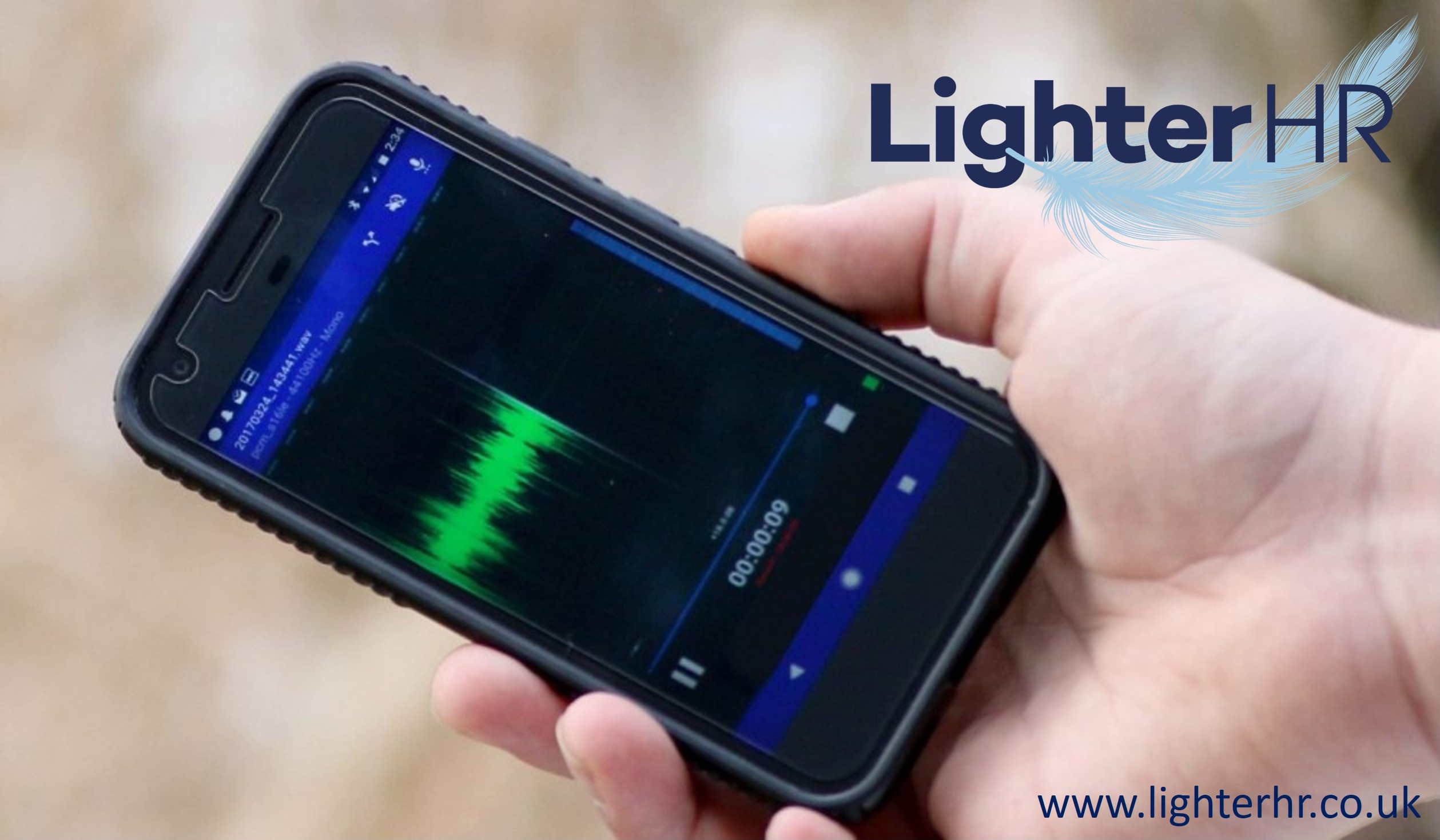We’ve dealt with a couple of clients recently where there has been covert surveillance taking place within the workplace by employees.
The question arises frequently as to whether evidence gathered this way is admissible in an employment tribunal case. Also, whether undertaking covert recording is a criminal act. We’ve also been asked about whether or not employers are able to monitor and record their employees.
As with many things in the wonderful world of employment law, there is no definitive answer to these questions, however we can provide some guidance.
1. Is undertaking covert surveillance a criminal act?
The answer to this question is “No”.
Recording other people is not a criminal act. There is a potential for it to be a breach of human rights but this only happens at the point at which the recordings are shared with a third party without the consent of the individuals who have been recorded.
2. Can you record and monitor your employees?
This time it’s a “Yes”. However, there are strict guidelines you need to follow to ensure that you don’t breach data protection legislation.
If you’re considering recording (whether audio or visual) or if you’re considering undertaking monitoring of any sort i.e. IT usage, then you do need to make sure that you follow an appropriate process.
Impact Assessment
Firstly, you need to carry out an impact assessment. You need to understand the impact on the employee and be sure that you can justify this in terms of the benefit to the business.
An impact assessment needs to cover the following areas:
- Definition of exactly what type of monitoring is being considered and what benefits it is likely to deliver.
- Identification of any likely adverse impact of the monitoring. In the case of employee monitoring the most common adverse impact is invasion of privacy.
- Alternatives to monitoring and different methods of monitoring need to be considered.
- Consideration needs to be given of the obligations that arise from monitoring. As an example, if you undertake video monitoring how are the images going to be protected to ensure that the business complies with data protection laws.
- Having considered all of the above, the final decision has to be made as to whether monitoring is justified.
Inform Employees
Secondly, if you feel that you are justified in undertaking the monitoring then you MUST inform your employees as to your intentions.
You don’t need their consent but you do need to inform them of exactly how you will be monitoring them. A written statement setting out your approach to monitoring staff will usually meet your obligations.
3. Can your employees record and monitor you?
Well, again the simple answer is “Yes”.
There is no legislation that prevents employees undertaking covert surveillance on your premises. You can however put a policy in place which states that your business doesn’t allow recording on premises.
4. What if an employee records anyway, can covert recordings be used as evidence?
Even with a policy in place which prevents recording on premises, employees may sometimes feel justified in undertaking covert surveillance. This can be the case where they feel that the only way to prove that they are being treated unfairly is to record evidence.
Whether a tribunal will allow the submission of covert recordings as evidence depends entirely on the situation. The panel can exercise their judgement. If it is felt that the only way that the employee could provide evidence of wrong doing was to undertake covert recordings, then there is precedent that this will be allowed as evidence.
5. Assessment of Relevance
In the case, Vaughan v London Borough of Lewisham, the Employment Appeal Tribunal has clarified that covert recordings can be used as evidence but that they need to be relevant to the hearing. The claimant in this case had 39 hours of recordings but had made no effort to transcribe these or to highlight those which it was felt supported the case. The EAT stated that the claimant should have made it clear the way in which the recordings supported the case and their relevance. As a result, the evidence was not allowed.
6. How to Protect Your Business
The reality is that almost everyone now has the ability to record conversations with their mobile phones so you need to put some precautions in place to protect your business.
- Make sure you have a clear policy that tells employees of any monitoring that the business undertakes. This can be included in your staff handbook.
- Make sure you have a clear policy that states that you do not allow recording on company premises. Again, this can be included in your staff handbook.
- In employee disciplinary and grievance situations you should act as if you are being recorded and be cautious in your choice of words. Don’t say anything that you wouldn’t be happy to put your name to later.



